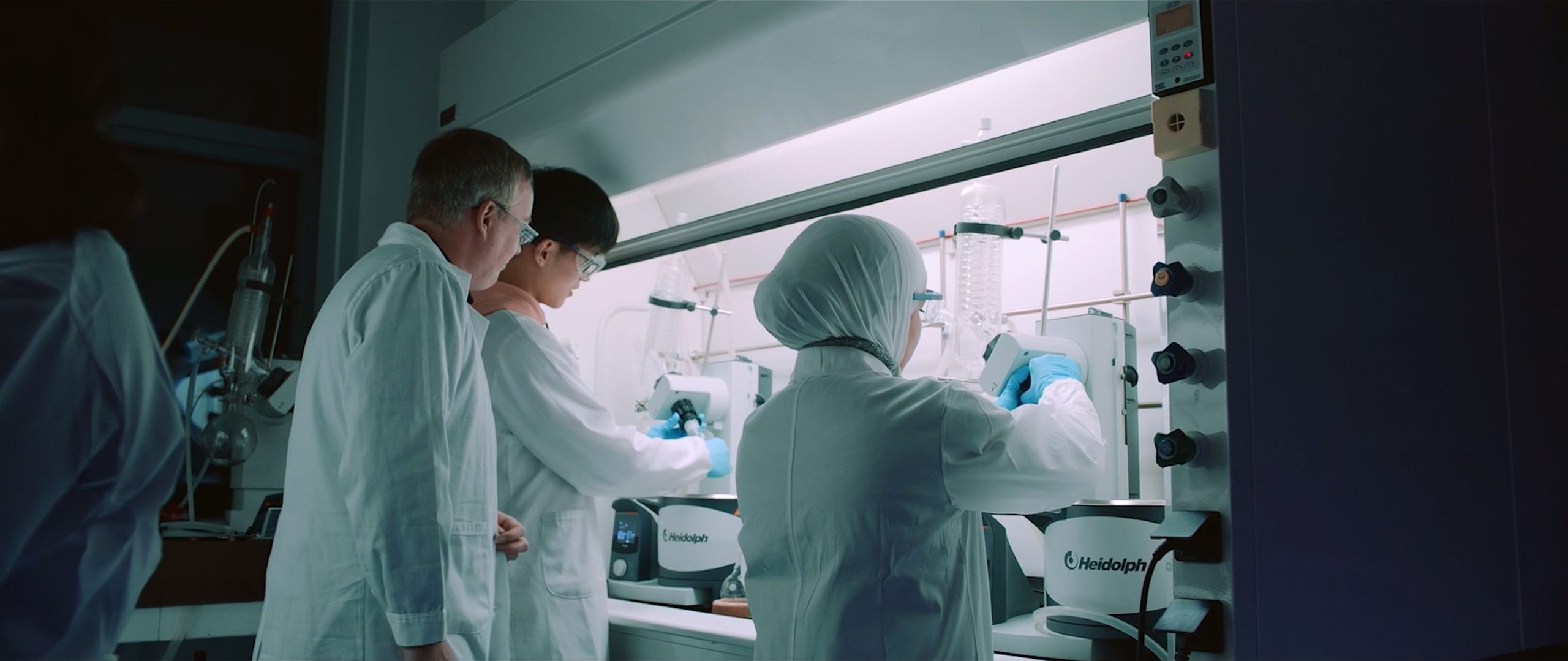CHE Teaching and Research Labs

All

- About
-
Labs and Spaces
- BIO Teaching and Research Labs
- CHE Teaching and Research Labs
- HES Teaching and Research Labs
- Suzhou Key Labs - 苏州重点实验室
- International Joint Frontiers Materials Frontier Research Lab
- Selenium Innovation Lab
- Outdoor Research and Teaching Space
- Atmospheric Research and Teaching Observatory
- Sci-iGEM
- AI4Health Suzhou Key Laboratory
- Suzhou Municipal Key Lab of Neurobiology and Cell Signaling
- Yuefengdao Ecology Station
- Suzhou Municipal Key Lab of Biomedical Sciences & Translational Immunology
- Suzhou Municipal Key Lab for Metabolic Syndrome Drug Research
- Suzhou Municipal Key Laboratory of Cancer Biology and Chronic Diseases
- Research
- Advanced Materials Research Center (AMRC)
- Global Partnerships
- Contact




The Department of Chemistry boasts world-class learning, teaching and research facilities, including:
The full range of high-resolution NMR experiments are offered at operating frequencies of 400 or 600 MHz, all supplied by Bruker, to provide an open-access service for trained users. Potential users of the open-access systems should consult the technician team about training.
As part of the core facilities in the SIP campus, the Department of Chemistry have high specification mass spectrometry instruments. These instruments can be used to identify and quantify compounds and molecules in a wide range of matrices. There are three open-access instruments available at Department of Chemistry:
Potential users should attend a training course for each piece of equipment. Training courses open to MRes, PhD status and above.
Department of Chemistry provides modern facilities for advanced materials imaging and characterisation. The facilities include scanning electron microscopes (SEMs) FEI TITAN 80/300 and FEI Helios NanoLab 600 DualBeam.
The X-ray Diffraction Crystallography Facility is a fully equipped resource for the preparation, crystallization and diffraction of crystals. The X-Ray diffraction equipment is available for use by all members of the School. Bookings are made via LIMS once registered.
Chromatography separates complex mixtures into individual compounds that are subsequently introduced into a detector to allow the detection and identification of the analytes. Department of Chemistry has access to a range of analytical equipment including:
Advanced, research grade spectrophotometer offering spectral range and unrivaled sensitivity to meet the most demanding applications. Department of Chemistry provides three open-access instruments for teaching and research including:
Understanding electrochemical processes is key to developing energy storage and conversion devices (fuel cells, solar cells, batteries) as well as being at the heart of much of modern biology and nanotechnology. Department of Chemistry now has electrochemical works satiations:
The University computing service provides access to high performance computing (HPC) resources and support to researcher at Department of Chemistry. At the core of the service is a large HPC facility for non-interactive, high-throughput and highly parallel compute- and data-intensive tasks. The HPC facility additional contains compute nodes with GPUs for GPU accelerated workloads including AI/Machine Learning.